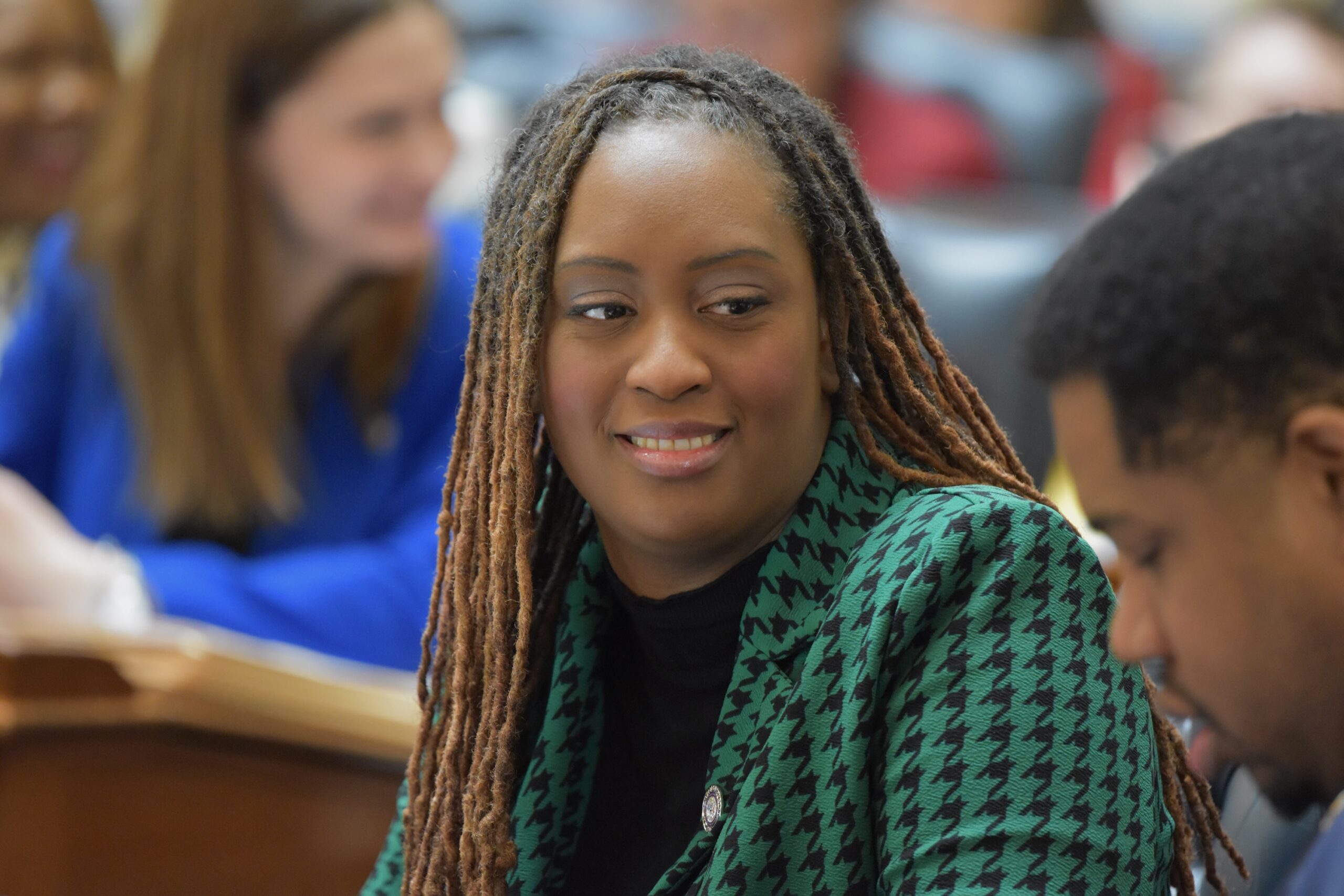Legislative notes: An impasse on higher ed programs, racing bill nears finish line, health and snakehead bills headed to governor

The House rejected proposed Senate amendments on a high-profile higher education bill Friday and instead appointed conference committee members to help resolve the differences between the two chambers.
The House and Senate are at odds over House Bill 1244 and Senate Bill 1022, a measure designed to improve the approval process for higher education programs.
Dels. Ben Barnes (D-Prince George’s and Anne Arundel), Stephanie Smith (D-Baltimore City) and Carl Anderton Jr. (R-Wicomico) were appointed to be the House conferees.
The bills include provisions based on recommendations from a legislative work group that began meeting last year after a controversial decision by the state Higher Education Commission to allow a new business analytics degree program at Towson University over the objections of officials at Morgan State University, a historically Black campus five miles away, who argued it would duplicate a similar program there.
The House bill includes a special provision to allow the state’s four HBCU schools — Morgan State, Bowie State and Coppin State universities and the University of Maryland Eastern Shore — and the University of Maryland, College Park to submit proposals to implement an emerging workforce graduate level program.
According to the bill, the program must address a job or industry need not offered at any higher other education institution, “that is innovative, unique and rare” and could leverage federal, state, or private resources on a long-term basis with an immediate development.
Alumni and supporters of HBCUs support those provisions because of the state’s history of not fully providing resources to the Maryland schools.
They have said the commission’s decision for Towson was in direct conflict with a $577 million settlement approved in 2021. The settlement was stirred by a lawsuit filed in 2006 that accused the state of providing more resources for predominately white institutions and allowing those schools to duplicate other programs offered at the state’s HBCUs.
But the Senate Education, Energy and the Environment Committee stripped the provisions of the emerging workforce program for those schools and University of Maryland from the House measure.
The Senate panel also stripped a provision for other institutions to submit a proposal for an emerging workforce graduate level program, but only within two years after publication of the commission’s higher education plan, or the appendix to the plan.
Without that language and a few other technical amendments, the panel advanced the measure to the full Senate, which later approved the House bill unanimously Thursday.
Smith, who co-chaired the legislative work group, said in an interview Friday the proposed workforce program allows for it to begin at the HBCUs and the University of Maryland, the state’s flagship campus. In addition, she said this would start collaboration with other schools “that to date, has not happened.”
“I think it’s healthy that policymakers have a healthy debate. I don’t expect everyone to always agree on all things at all times,” she said. “As we continue to have these conversations, people are becoming more comfortable with what is really set forth based on what [the bill] really says and not what they maybe thought it says.”
Pimlico progress
The Maryland House of Delegates Friday gave preliminary approval to a bill that would transfer the Preakness and Pimlico Race Course to a nonprofit controlled by the state.
House Bill 1524 codifies a framework agreement worked out between a nonprofit state racing authority and the Stronach Group, the Canadian business that owns the flat racing tracks Pimlico and Laurel Park, and rights to important races.
The voice vote sets up a final vote in the House potentially as early as Monday with one week left in the 90-day legislative session.
Not everyone is happy with the bill.
“In the minority party, we try to make bad bills better. It’s impossible with this,” said Del. Matthew Morgan (R-St. Mary’s).
The House also gave final approval to HB 1525, which establishes two funds of $5 million each to pay for regular maintenance and emergency repairs at M&T Bank Stadium. The funds are part of a 15-year lease extension agreement with the Ravens.
The law requires the Maryland Stadium Authority to contribute $1 million annually to the maintenance fund until it reaches a $10 million balance.
The Ravens are to contribute $1 million annually to the emergency fund until that balance is $10 million.
After that, the authority and the team are jointly responsible for maintaining the emergency repair fund balance at $10 million.
The bill now heads to the Senate.
Access to care headed to governor’s desk
Undocumented residents of Maryland may soon get the opportunity to purchase private health care plans on the state’s insurance marketplace. Senate Bill 705, known as the Access to Care Act, has won approval from both legislative chambers.
Undocumented immigrants are currently unable to shop for individual health insurance plans using the Maryland Health Benefit Exchange, which helps people compare different plans to find the coverage that best works for them within their budgets. The bill would seek a federal waiver so that Maryland’s undocumented residents can use the insurance marketplace too, regardless of citizenship status.
The bill initially sparked debate on the House and Senate floor, with opposition from Republican lawmakers who questioned whether it was appropriate to extend the services of the Maryland Health Benefit Exchange to undocumented residents.
But Wednesday, the House passed the Senate bill on a 100-38 line with little commotion as the days wind down in the 2024 session. After a final Senate review Thursday, the bill heads to the Governor’s desk for consideration.
Snakeheads getting better marketing
A rebranding for the invasive fish once called “Frankenfish” heads to the desk of Gov. Wes Moore (D).
House Bill 19 and SB 207 both received final approval Friday. If signed by Moore, the Northern Snakehead, an invasive species, could be called the Chesapeake Channa.
The name change is all about getting the Northern Snakehead on dinner tables. Sen. Jack Bailey (R-St. Mary’s) once described the fish native to east Asia, China, Russia, as well as North and South Korea as “delicious to eat.”
And therein lies the plan: The fish is a voracious predator that has no natural enemies. Since it was first identified in a Crofton pond more than two decades ago, the fish has spread in Maryland.
Supporters of the bill hope that renaming the fish will make it more palatable to people. Eating the fish is seen as one way to better manage the population in Maryland waters.






 Creative Commons Attribution
Creative Commons Attribution